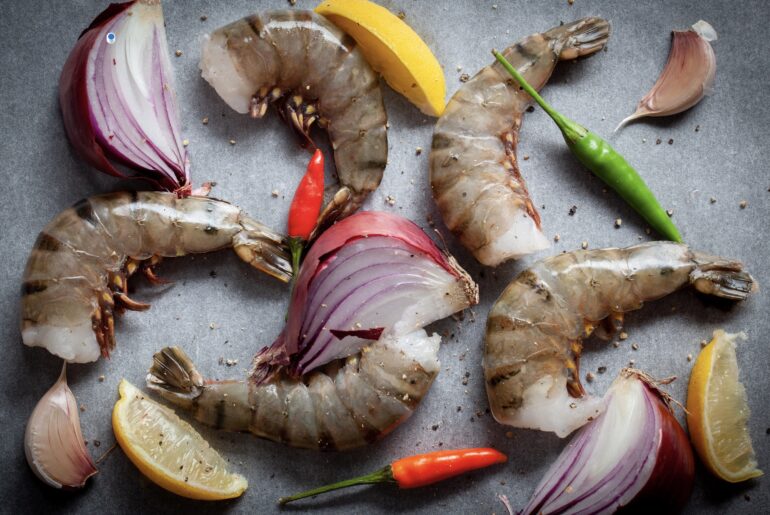Demand for warm water prawns in United Kingdom retail stores continues to increase, despite increasing price points. Now, with the final remaining SARS-CoV-2 lockdown restrictions in England set to end on July 19, it is anticipated that sales in restaurants, pubs and other foodservice outlets will rise significantly.
The frozen seafood sector in Britain was worth £1,067 million in the 52-week period through March 10, 2020 – up 16% with volume of 144,612 tons (+10.4%) and an average price of £7.38 per kilogram (+5.1%) – taking share from chilled sales, according to Seafish’s Seafood multiple retail report.
The upward trend for frozen food in general has continued throughout pandemic, with seafood being a particular favorite among 86.8% of shoppers, according to Seafish. The panic buying in the retail stores, driven by the outbreak of Covid-19, saw sales in this usually flat category surge by up to 74% versus last year.
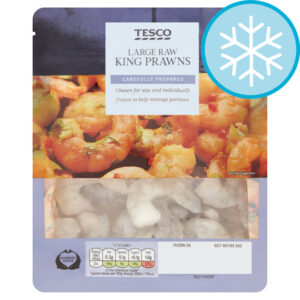
In fact, compared with the previous year, shoppers bought frozen seafood more often with a larger basket size, spending a total of £41.43, equating to 6.01 kilograms over the year. Convenience was a key factor for consumers, which resulted in the coated frozen segments experiencing solid growth. Frozen natural, breaded and prepared products scored double-digit advances, while frozen meals, sauced and sushi items were the only frozen segments in decline.
Strong Performers
Established farm-raised seafood species, such as warm water prawns, continued to perform well in the frozen category over the last year. However, the decline of traditional species has been slower in the frozen sector.
“Frozen is a popular format for shellfish,” said Richard Watson, a market insight analyst at Seafish. “Over the same period frozen shellfish consumption has grown significantly faster than that of chilled shellfish. This is likely due to shoppers recognizing the price, quality and convenience advantages of frozen.”
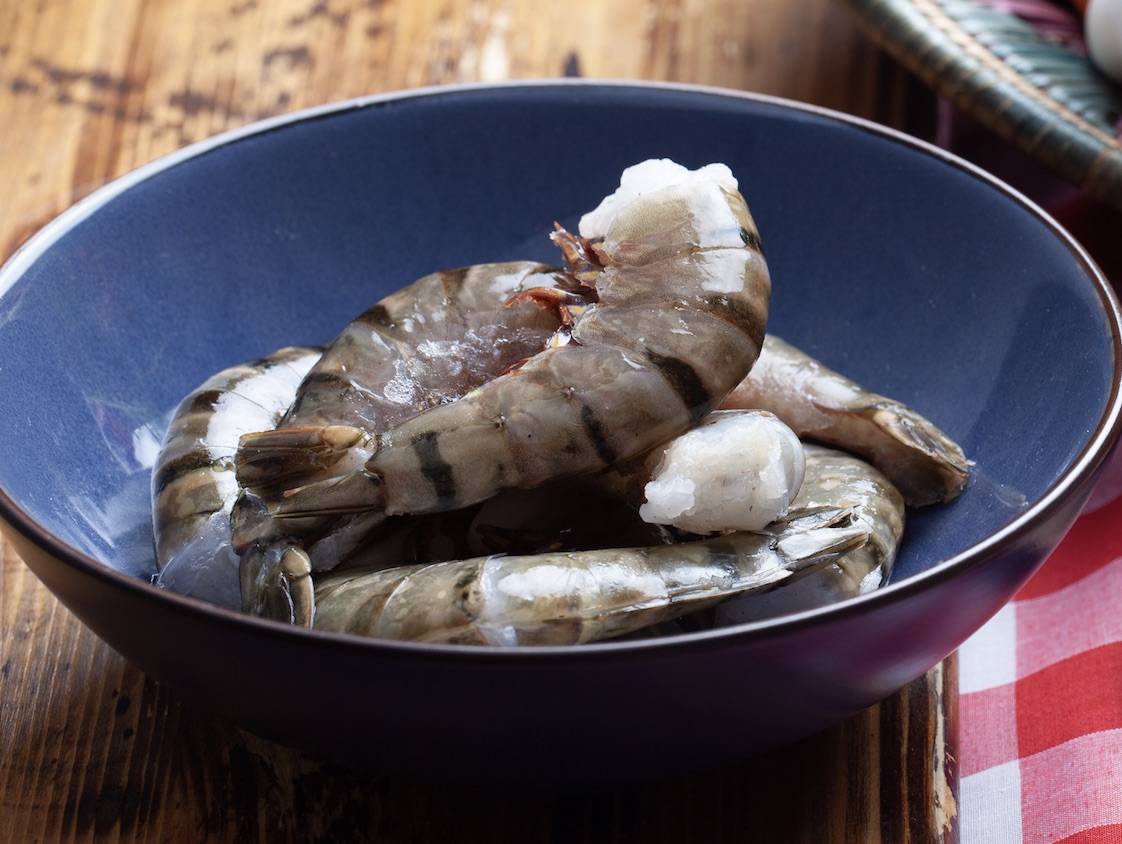
During the decade through October 3, 2020, frozen cold water prawn sales in Britain were in decline, with significant price rises cited as the main driver. However, despite price increases of 30%, warm water prawns saw strong long term growth.
Sustainability remains an important issue for consumers, which is evident in the volume of Marine Stewardship Council (MSC) certified prawns increasing by 11% over the past year, despite the impact of the pandemic.
The volume of MSC-labeled prawns sold globally increased by 19% from 2019 to 2021. The biggest market for these products was the UK and Ireland, which accounted for 31% of total tonnage sold, with Sweden and Scandinavia coming closely behind in second and third place.
“Unsurprisingly, sales of frozen food soared during the pandemic, with frozen prawns continuing to be a popular choice for UK and Irish shoppers,” said Loren Hiller, MSC’s commercial manager for the UK and Ireland. “In fact, the volume of MSC-labeled prawns sold in the UK and Ireland in 2020-21 was quadruple that of the previous year, a clear indication of the growing demand from consumers desire to source prawns that are certified sustainable and fully traceable.”
Supply Chain
The pandemic has thrown a spanner in the works when it comes to supply of cultured warm water prawns, as they are primarily imported by UK buyers and distributors from suppliers in Asia and South America.
The devastating SARS-CoV-2 virus has affected the Indonesian economy substantially, with many communities negatively affected by the lockdowns and severe constraints on the health services.
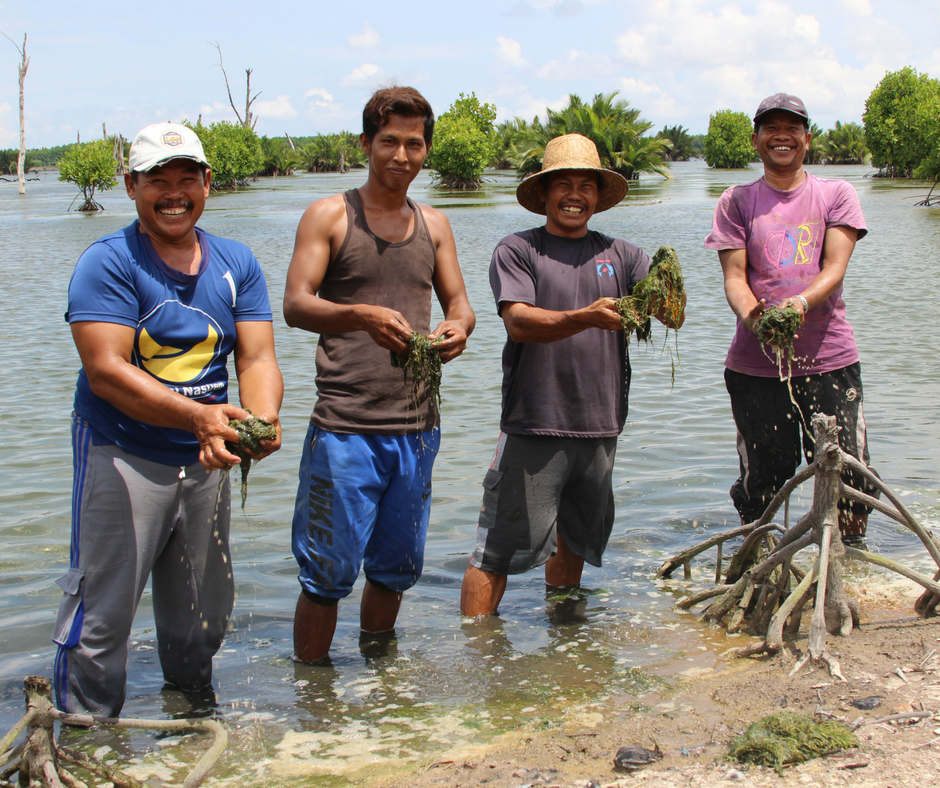
“Fortunately, our farmers and their families in Indonesia live extremely rurally and have taken precautions since 2019 to protect themselves,” said Aanisah Idriss, sales and marketing director of the Birmingham, UK-headquartered Happy Prawn Company. “The same applies to our processing factory, in which we ensure each staff member gets tested and cleared before working with the product. However, the rise in the delta variant has recently put Indonesia in a full lockdown, so shipping containers in general – both entering and leaving the country – have been substantially restricted. This has affected product availability and also production.”
Ports in the United Kingdom are undertaking further checks on all cargo, which means more time is required to clear containers. This in turn has led to businesses incurring additional demurrage and storage costs.
“Overall, there was a decrease in retail demand. This was due to a whole range of things, such as container availability and product demand (forecasting),” explained Idriss. “However, the Covid climate made consumers more intrigued about what they were eating, so we saw a rise in activity at our online shop as more and more people were interested in trying prawns and understanding our production methods, the healthy benefits and how our prawns help communities.”
Similarly, in post-Brexit Britain, transport issues and cold storage capacity continue. A lack of available cold storage space availability remains problematic, which has also impacted the supply chain, as companies are stockpiling goods.
Product Trends
When it comes to value-added prawn products, not much has changed in terms of the types of offerings, despite the category experiencing expansion.
“There is a noticeable increase in the overall growth in value-added prawn products due to the ease of cooking,” said Idriss. “For example, there has been an increase in our peeled and cooked items, because they are easy to chuck into a summer salad.”
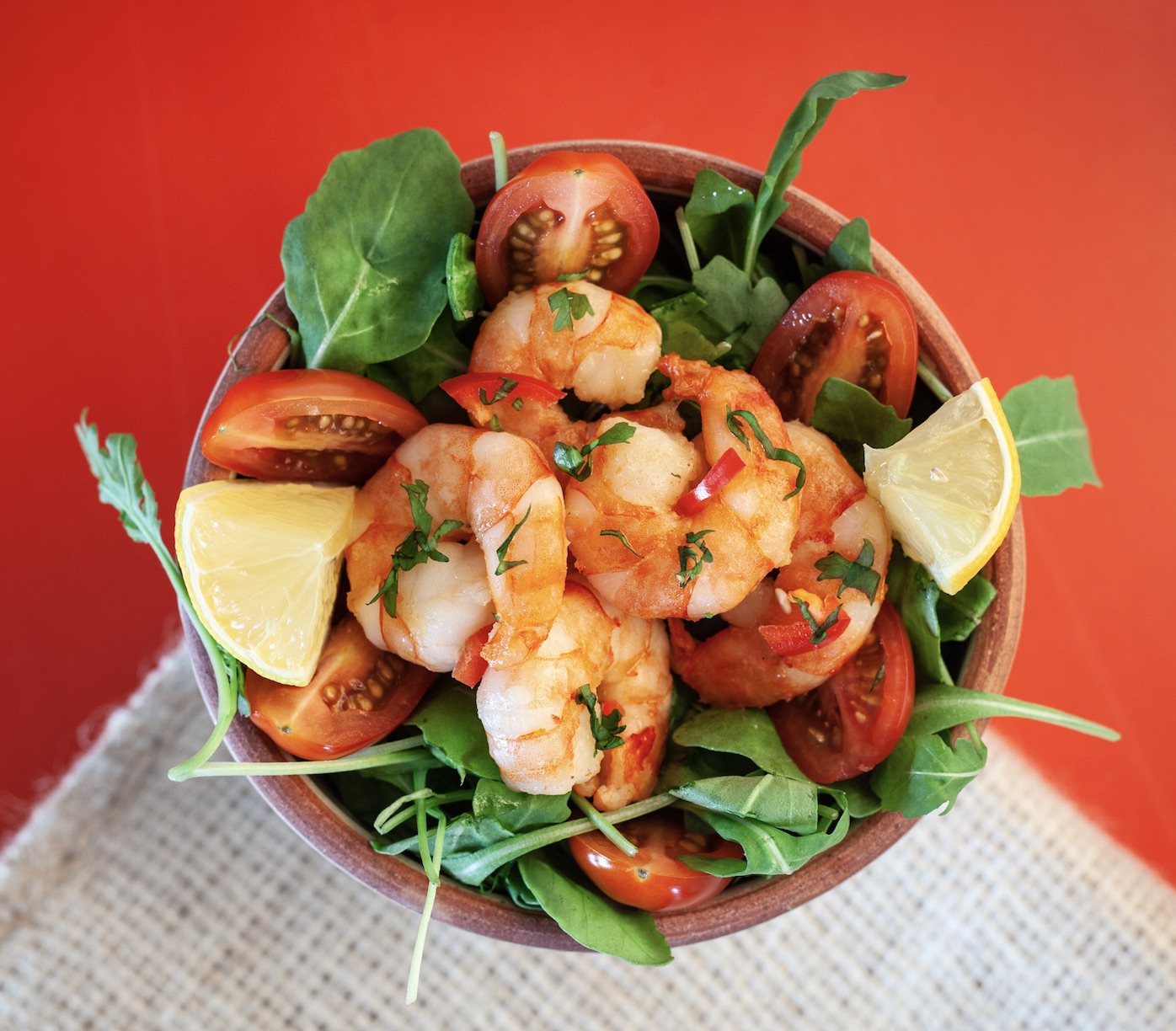
“However,” she added, “raw peeled prawns still stand as our most popular product. This is due to its versatility and capability in locking in the flavors when cooking a dish.”
Independent foodservice brand Country Range has strengthened its seafood selection with the addition of sustainably sourced, raw, peeled and deveined frozen king prawns, which is now ranked among its most popular seafood lines.
“King prawns can be used in a number of different dishes including fragrant curries and pasta dishes, and they are delicious when simply grilled with garlic and chili and served with a seasonal salad,” said Vasita Jantabutara, Country Range’s group brand manager. “Our king prawns are of the finest quality, and as they are IQF-frozen within hours of harvest, they are of the freshest quality and ideal for fast-paced kitchens.”
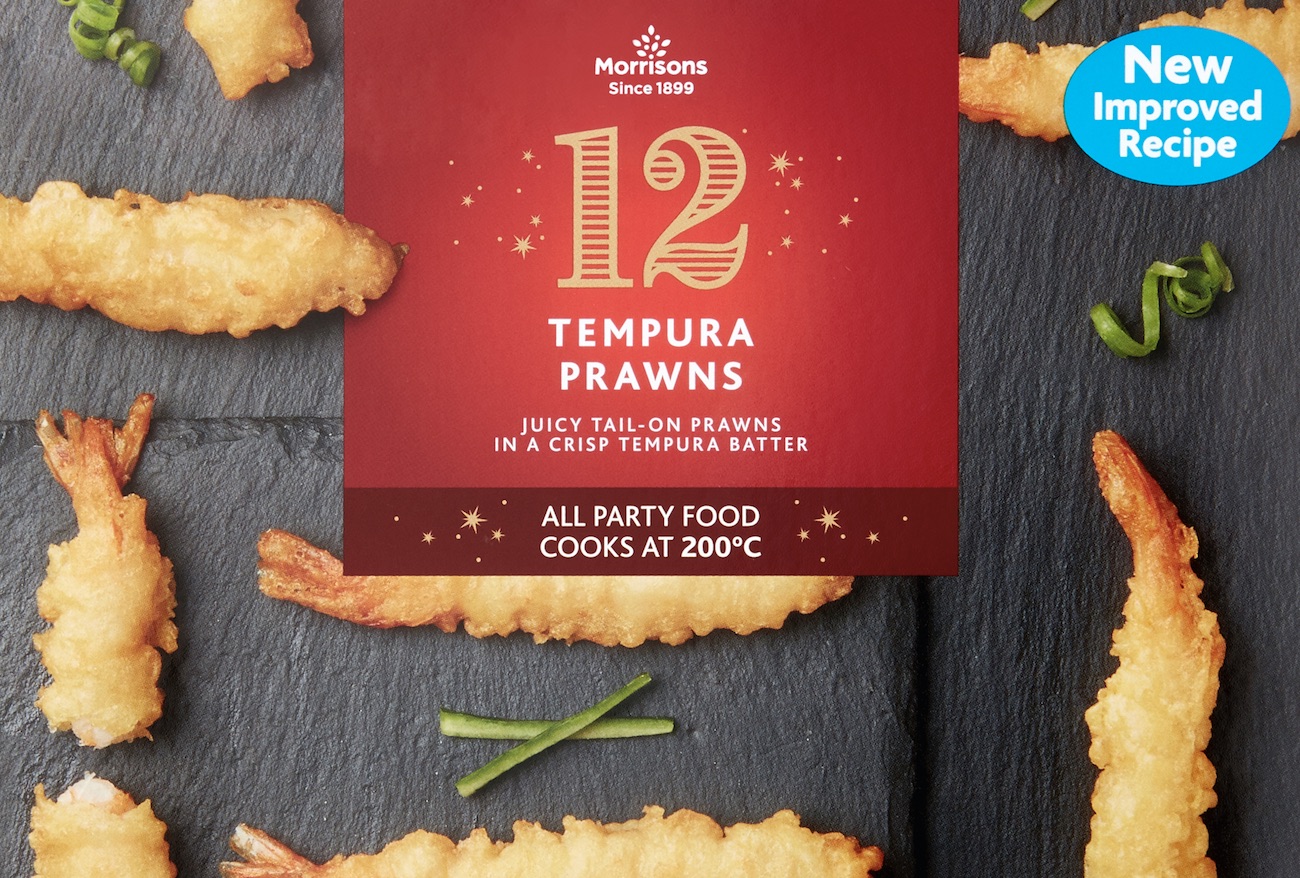
All the major supermarket chains offer a range of cooked and raw natural frozen prawn products under their own labels, with value-added products such as tempura and marinated prawns listed. Other popular prawn products in the frozen aisles include prawn gyoza under the Itsu brand. However, there hasn’t been much innovation within this sector.
Frozen prawn sales have continued to gain momentum throughout the pandemic, and as a third wave may be in the offing it’s probable that sales will rise further still as consumers engage with the sector, recognizing the price, quality and convenience advantages that frozen products have to offer. – Reported by Sarah Welsh

